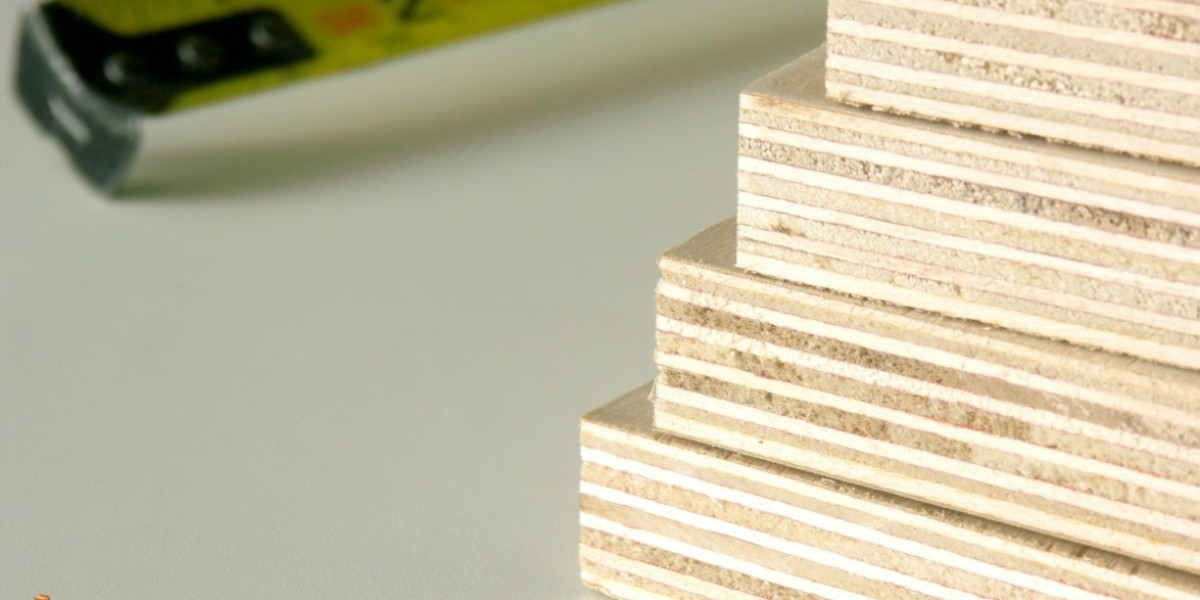Modular kitchens have become the hallmark of modern homes, blending style with functionality. Among the materials available for building these kitchens, plywood has emerged as a favourite due to its versatility, durability, and aesthetic appeal. Whether you’re renovating an old kitchen or building one from scratch, understanding why plywood is a preferred choice can help you make an informed decision.
What is Plywood?
Plywood is a manufactured wood product made by bonding thin layers of wood veneers together with adhesives. These veneers are arranged in alternating grain directions to enhance strength and reduce the possibility of warping. The result is a robust, flexible, and durable material ideal for various applications, including modular kitchen cabinets, countertops, and shelves.
Key Reasons Plywood is a Popular Choice for Modular Kitchens
1. Exceptional Strength and Durability
The cross-grain structure of plywood makes it highly durable and resistant to bending or breaking. In modular kitchens, where cabinets and countertops bear significant weight from utensils, appliances, and food items, this strength is indispensable. High-quality plywood can withstand heavy loads and resist wear and tear, ensuring your kitchen remains functional for years.
2. Resistance to Moisture and Heat
Kitchens are exposed to moisture and heat regularly, making material selection crucial. Specific types of plywood, like Marine-grade and BWP (Boiling Water Proof) plywood, are specially treated to resist water damage. These variants are ideal for modular kitchens, as they can endure the humid environment near sinks, stovetops, and dishwashers without warping or rotting.
3. Versatile Designs and Finishes
Plywood serves as a blank canvas for creativity, offering compatibility with a wide range of veneers, laminates, and paints. Whether you prefer a sleek, modern look or a rustic, traditional style, plywood can be customised to match your aesthetic vision. Its smooth surface ensures flawless application of finishes, allowing homeowners to create unique kitchen designs.
4. Eco-Friendly and Sustainable Option
Unlike solid wood, which requires cutting down entire trees, plywood is crafted from thin veneers, making it a more sustainable option. Many plywood manufacturers now use wood from plantation forests or recycled sources, reducing the material’s environmental impact. For eco-conscious homeowners, choosing plywood for their modular kitchen aligns with sustainable living practices.
5. Cost-Effective Solution
Plywood strikes the perfect balance between quality and affordability. While it may cost more than particleboard or MDF, its durability and longevity justify the investment. Additionally, it offers a luxurious feel and appearance comparable to solid wood, but at a fraction of the price, making it a popular choice among homeowners.
6. Lightweight Yet Sturdy
Despite its strength, plywood is relatively lightweight compared to other materials like solid wood. This feature simplifies installation and reduces the strain on hinges and sliders in modular kitchen cabinets. Lightweight materials are particularly advantageous in upper cabinets, where excess weight can compromise structural integrity over time.
7. Pest Resistance
Termites and other pests can wreak havoc on wooden furniture, including kitchen cabinets. Many plywood variants come with anti-termite treatments, ensuring your modular kitchen remains pest-free. This added layer of protection enhances the material’s longevity, especially in regions prone to pest infestations.
8. Adaptability to Complex Designs
Modular kitchens often feature intricate layouts with curved edges, corner units, or customised storage solutions. Plywood is highly flexible and can be cut, shaped, or moulded to fit complex designs without losing its structural integrity. This adaptability makes it the go-to material for designers looking to maximise space efficiency and functionality.
9. Easy Maintenance
Plywood cabinets and surfaces are easy to maintain, thanks to their smooth finish and resistance to stains. Regular cleaning with a damp cloth is sufficient to keep them looking new. For families with busy lifestyles, the low-maintenance nature of plywood is a significant advantage.
Comparing Plywood with Other Materials for Modular Kitchens
Plywood vs MDF
Medium Density Fibreboard (MDF) is a popular alternative to plywood, but it lacks the latter’s strength and moisture resistance. While MDF is suitable for decorative panels and low-stress applications, plywood is a better choice for cabinets and countertops that endure daily wear and tear.
Plywood vs Particleboard
Particleboard is cheaper than plywood but less durable. It is prone to chipping and swelling when exposed to moisture, making it unsuitable for humid environments like kitchens. Plywood, on the other hand, offers superior longevity and resilience.
Plywood vs Solid Wood
Solid wood is often considered a premium material, but it is expensive and prone to warping or cracking in varying temperatures. Plywood offers similar aesthetics without the drawbacks, making it a practical and cost-effective alternative.
Types of Plywood for Modular Kitchens
BWP (Boiling Water Proof) Plywood: Ideal for areas prone to moisture, such as sink cabinets.
Marine Plywood: Highly resistant to water and often used in high-end kitchens.
Commercial Plywood: Suitable for dry areas and budget-friendly kitchen designs.
Fire-Retardant Plywood: Offers added safety in kitchens with high fire hazards.
Each type serves specific purposes, and selecting the right one ensures the longevity and functionality of your modular kitchen.
Tips for Choosing the Best Plywood for Your Kitchen
Check for ISI Certification: Look for IS 710 (Marine Plywood) or IS 303 (Commercial Plywood) marks to ensure quality standards.
Inspect for Uniform Thickness: Uneven layers can compromise strength and durability.
Opt for Branded Products: Reputable brands often provide warranties and adhere to safety standards.
Consider Veneer Quality: Higher-grade veneers result in smoother finishes and enhanced aesthetics.
Test for Moisture Resistance: Pour a few drops of water on the surface to check absorption levels.
Where to Purchase the Best Plywood for Your Modular Kitchen
Choosing the right plywood is essential for creating a durable and stylish modular kitchen. To ensure you get the best quality, it’s crucial to buy from trusted suppliers and manufacturers. If you’re located in Tamil Nadu, there are numerous plywood suppliers in Chennai who offer high-quality materials tailored to various kitchen needs.
When sourcing plywood, consider exploring options provided by leading plywood manufacturers in Chennai. These manufacturers offer a wide range of products, including BWP, Marine-grade, and Commercial plywood, ensuring you find the perfect match for your kitchen’s requirements. Many manufacturers also provide warranties and certifications, such as ISI markings, guaranteeing the plywood's quality and reliability.
Conclusion
Plywood has established itself as the material of choice for modular kitchens due to its unbeatable combination of strength, versatility, and cost-effectiveness. It not only meets the practical demands of a kitchen but also offers aesthetic appeal and sustainability. By selecting the right type of plywood and applying suitable finishes, homeowners can create a modular kitchen that is both functional and visually stunning.
Whether you’re designing a compact kitchen or a spacious culinary haven, plywood ensures your investment pays off in durability and style. With its proven track record, it’s no wonder plywood continues to dominate the world of modular kitchen design.









